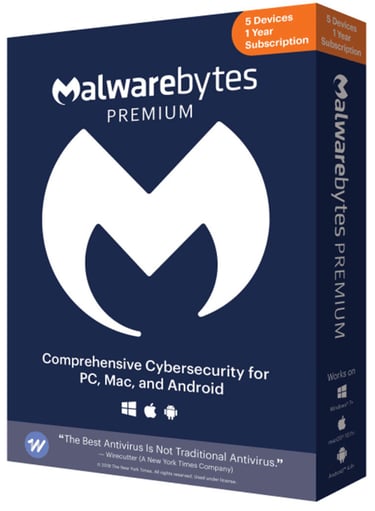Protect Yourself from Fake Game Websites
Discover how fake game websites install malware like trojan horses that steal your sensitive data, including usernames, passwords, and banking details. Learn to identify these threats and protect your devices effectively.
INTERNET SECURITY THREAT
4 min read
Fake Game Site Sensitive Data Stealers
You get a message "Can you please try this new Game I made?" in some email, SMS, Discord, Social Media etc. You are a hardcore gamer and you click on the link they sent you. That is it. The game installs a Malware on your device and the hackers start stealing all your sensitive data from your device, including your User Names, Passwords, Banking details, Your Credit Card Details and pretty much everything, to be sold on dark web. You can install an Anti-Malware software like Malwarebytes to detect and cleanup Malware before they can do any harm. Watch this Video to understand.

This video explains in detail how the Malware gets installed in your device in the name of testing a new game and starts stealing your sensitive data.
Understanding the Threat of Fake Game Sites and Information Stealers
The rise of digital gaming has brought unparalleled entertainment and connectivity to millions of people around the globe. However, this surge has also drawn the attention of cybercriminals who exploit unsuspecting gamers through fake game sites designed to steal personal and financial information. In this article, we will explore how these malicious sites operate, the methods they use to steal information, and how you can protect yourself from such cyber threats.
How Fake Game Sites Operate
Fake game sites are deceptive websites that masquerade as legitimate gaming platforms. They often promise access to exclusive content, beta versions of new games, or free in-game currency. These sites are designed to attract a large number of visitors by exploiting the excitement and curiosity of gamers.
One common tactic is to use social engineering techniques to make these sites appear credible. Cybercriminals might:
Use Compelling Visuals and Branding: They mimic the design and branding of well-known gaming companies, using high-quality graphics and logos.
Offer Limited-Time Deals: They create a sense of urgency by advertising limited-time offers or exclusive access to unreleased games.
Utilize Social Media and Forums: They promote their fake sites through social media posts, gaming forums, and even direct messages to potential victims.
Once a user visits a fake game site, several methods can be employed to steal their information.

This video explains how dangerous can fake game sites can be stealing your sensitive data and selling it on dark web.
Malwarebytes is the World's most Popular Anti-Malware Software.
Methods Used to Steal Information
Cybercriminals use a variety of techniques to extract sensitive information from users who visit their fake game sites. Some of the most common methods include:
Malware Distribution:
Trojan Horses: Trojan Horse is a malicious program that is disguised as legitimate software or files. When a user downloads what they believe to be a game, they actually install malware that can steal personal data, monitor their activities, or give remote control to the attacker.
Information Stealers: Specific types of Trojan Horse, such as the Nova Stealer, Ageo Stealer, and Hexon Stealer, are designed to extract sensitive information like login credentials, session cookies, passwords, and cryptocurrency wallet data.
Phishing:
Fake Login Pages: Cybercriminals create login pages that look identical to those of legitimate gaming sites. When users enter their credentials, the information is sent directly to the attackers.
Email Phishing: Users may receive emails that appear to be from reputable gaming companies, asking them to verify their accounts or claim rewards by clicking on a link that leads to a phishing site.
Drive-by Downloads:
These occur when users visit a compromised website that automatically initiates a download of malware without the user's knowledge or consent. The malware can then perform various malicious activities on the victim's device.
Man-in-the-Middle Attacks:
Cybercriminals intercept the communication between a user and a legitimate gaming site. This can happen on unsecured networks, such as public Wi-Fi, where attackers can capture login credentials and other sensitive information.

Malwarebytes can detect and remove all Malware, Virus, Trojan Horse, Ransomware, Worms, Spyware, Adware, Browser Hijackers, Rootkits etc before they harm your device, without a trace.
How to Protect Yourself from Fake Game Sites
While the threat of fake game sites is real, there are several measures you can take to protect yourself and your information from these cyber threats.
Verify the Legitimacy of Websites:
Check the URL: Ensure that the URL matches the official website of the gaming company. Look for HTTPS in the web address, which indicates a secure connection.
Research the Site: Search for reviews or forum discussions about the site to see if other users have reported it as fake or suspicious.
Be Cautious with Downloads:
Download from Official Sources: Always download games and software from official websites or authorized distributors.
Scan for Malware: Use reputable antivirus software to scan any downloaded files before opening them.
Use Strong, Unique Passwords:
Create strong passwords that are difficult to guess and use a unique password for each of your online accounts. Consider using a password manager to keep track of your credentials.
Enable Two-Factor Authentication (2FA):
Enable 2FA on your gaming accounts for an extra layer of security. This requires you to enter a verification code sent to your mobile device in addition to your password.
Be Wary of Phishing Attempts:
Scrutinize Emails: Be cautious of emails that ask you to provide personal information or click on suspicious links. Verify the sender's email address and look for any inconsistencies.
Avoid Clicking on Links: Instead of clicking on links in emails or messages, type the URL directly into your browser.
Monitor Your Accounts:
Regularly check your gaming and financial accounts for any unauthorized activity. If you notice anything suspicious, change your passwords immediately and report the activity to the relevant authorities.
Stay Informed:
Keep yourself updated on the latest cybersecurity threats and best practices. Follow trusted sources for news on emerging threats and how to protect yourself.
Use Secure Connections:
Avoid using public Wi-Fi networks to access sensitive information. If you must use public Wi-Fi, consider using a virtual private network (VPN) to encrypt your internet traffic.
Conclusion on Fake Gaming Sites
Fake game sites and information stealers pose significant threats to gamers and their personal information. By understanding how these cyber threats operate and implementing the protective measures outlined in this article, you can significantly reduce your risk of falling victim to such cyber attacks. Also do not forget to install an industry standard Anti-Malware like Malwarebytes on your PC, Laptop, Phones and Tabs before you start playing games as a precaution. Stay vigilant, prioritize your online security, and enjoy your gaming experience without unnecessary worries.
Cyber Security Threats
Malwarebytes Premium
Protect all your devices from all Malware and Viruses
© 2025. All rights reserved.


